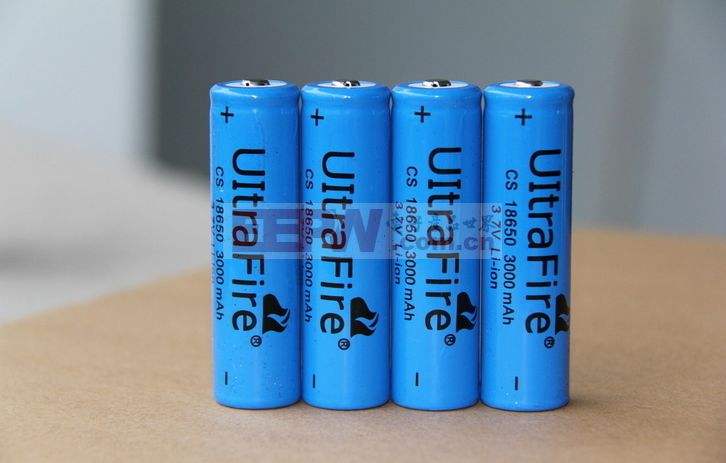Li-ion Battery Charging Myths
Sep 29, 2019 Pageview:1613
Long before lithium-ion batteries, devices were equipped with only nickel-based ones that held power. With the transition and advances, consequences emerged, introducing themselves as myths or claims that confused people on how to handle such cells. Many individuals tend to hold on to the limitations that were present and prevalent with nickel-based batteries in the ‘90s till now. They assume that such disadvantages still apply to date even with the improved technology at hand. The result of such may be unintended false care for Li-ion cells which may lead to faster deterioration.
This article, however, has been devoted to clear the minds of li-ion battery users, offering them a way out of the confusion. There are probably a lot of questions concerning such cells and how to properly care for them. Instead of focusing more on what ‘YouTubers’ have to offer on battery care, take time to read this guide or the manufacturer’s manual once in a while. You will be guaranteed a change in your safety precautions when it comes to handling li-ion cells.
Myth 1: Always Use The Official Brand Charger for Your Phone
Here’s a very stubborn claim, one that marketers have been putting people on edge with. When you buy a new phone or probably happen to lose your original charger, many at times marketers or the manual will suggest replacing an original with another original charger. Now while this might be a big hoax, but we can’t blame them for doing their jobs.
Reality: Such people care less about the health of your phone and more about the sales they make. The truth is, any well-known third-party charger should work just fine for your li-ion battery. However, exceptions do exist when it comes to a certain unique type of charger such as the USB-C cables. Before you acquire a charger, you should familiarize yourself with the specs your phone needs and keep that charger vary in speed and power delivery capacity. Be on the lookout and avoid those cheap chargers though, as much as they may seem fine, some may give your phone a hard time.
Myth 2: Never Use Your Phone While It’s Charging
This myth brings along with its nostalgic incidences in life, especially during childhood when your mom would advise you harshly against it lest you spoil your phone. Sadly, like genes or traditions, the myth has been passed down from generation to generation, creating a satirical legend that only seems fit to believe since ‘mom always knows best.’ Others claim that using your phone while on the charge may cause it to explode or electrocute you.
Reality: There is no confirmation of evidence present for harm caused by using phones as they charge. As much as the ‘mini-cycle’ theory may apply when the battery drains at the same time as it charges over long periods, all you have to do is avoid very heavy usage as it charges.
Myth 3: Save Battery Power by Killing Apps or Using An App Killer
As much as this may be a myth, it deserves a standing innovation for convincing users for such a long time without ceasing. This might as well be the biggest lie that seduces people into installing app killers which end up making things worse.
Reality: As much as app killers claim to ‘kill apps’ and save your battery life hence making your phone run smoother, they also tend to use up the resources they claim to protect. Such apps can be termed as ‘heroic villains’ since they end up protecting and destroying at the same time. As much as you freeze apps running in the background, you may also unintentionally be using more power than those apps do for the process. After all, such background apps are required by the processor and tend to resurrect, and you’ll be forced to resent homicide once more, thus consuming more power. Carefully monitor your screen display time as its idle functioning may be the reason for less battery life.
Myth 4: Charging Your Phone Overnight Might Cause It to Overcharge
It’s surprising how such ‘folk tales’ in technology have stuck around more than the contributions of famous and infamous individuals. As compared to li-ion cells, nickel-based ones would have experienced ‘memory charge,’ and this might be the reason such a myth stands tall to this date. Questions still run through people’s minds… Should you leave your phone on charge overnight, and is it bad for the device or your safety?
Reality: Lucky for us, devices that use Li-ion batteries don’t experience such misfortunes like memory charge. Such cells are said to be ‘smart batteries,’ disregarding the relation to smartphones though. This means that once you plug in your charger, it will automatically stop charging once it’s full. Like a child at a buffet as some would say.
Myth 5: You Can Store Your Battery In The Refrigerator
At times you can’t help but laugh and applaud the efforts of such silly myths because as much as they seem absurd, they still manage to acquire a few followers in their regime.
Reality: If you hate your battery that much then refrigerating it may be one the best ways to prove it. One should remember that extreme temperatures, whether hot or cold, especially over long periods, is dangerous for the cell. Keep in mind that a battery is a collection of chemicals and exposing them to extreme conditions can be hazardous to the cells. Keep them in room temperatures to maximize shelf life and get the most out of your Li-ion battery.
Final Thoughts
It’s all fun and games to create myths or start legends about li-ion cell care until someone’s battery decides to take a stand against such mistreatment and act out. These myths may seem harmless, but in a real sense, the more we adhere to them the more likely our phones will deteriorate faster. Whenever you decide to change phones, just charge the damn device however much you want. Batteries are meant to be used and charged without fear. The more you use your battery, the more efficient it becomes but keeps in mind that it will still age just like anything else on this earth.
- Prev Article: Recharging Non Rechargeable Lithium Batteries
- Next Article: Li-Po Battery Parallel Charging Board
Leave Message
Hottest Categories
-
Hottest Industry News
-
Latest Industry News











